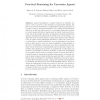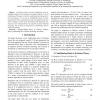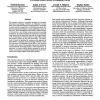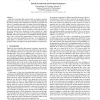40 search results - page 3 / 8 » The Belief Calculus and Uncertain Reasoning |
LPNMR
2009
Springer
13 years 12 months ago
2009
Springer
Abstract. Belief Logic Programming (BLP) is a novel form of quantitative logic programming in the presence of uncertain and inconsistent information, which was designed to be able ...
JELIA
2004
Springer
14 years 23 days ago
2004
Springer
Logical formalisation of agent behaviour is desirable, not only in order to provide a clear semantics of agent-based systems, but also to provide the foundation for sophisticated r...
EUSFLAT
2009
13 years 5 months ago
2009
- In Evidence theory, several conditioning rules for updating belief have been proposed, including Dempster's rule of conditioning. The paper views the conditioning rules prop...
AAAI
1994
13 years 8 months ago
1994
The situation calculus is a popular technique for reasoning about action and change. However, its restriction to a firstorder syntax and pure deductive reasoning makes it unsuitab...
KI
2001
Springer
13 years 12 months ago
2001
Springer
High-level controllers that operate robots in dynamic, uncertain domains are concerned with at least two reasoning tasks dealing with the effects of noisy sensors and effectors: T...




